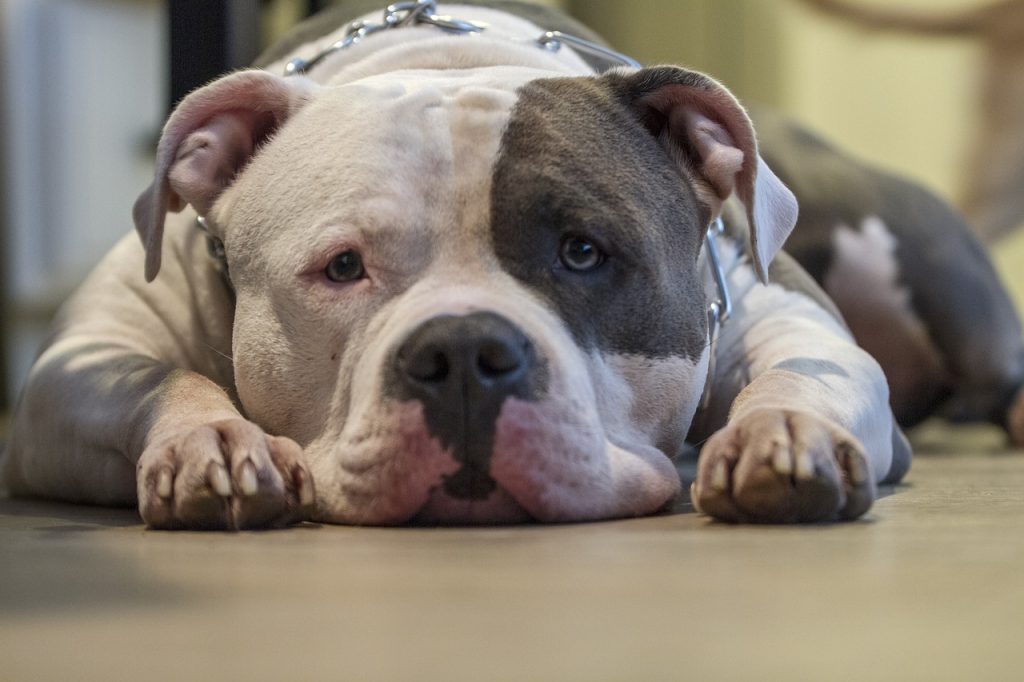Discover the reasons behind why dogs engage in destructive behavior when left alone and learn how to address and prevent this issue effectively. Understand separation anxiety, boredom, lack of training, fear, and lack of exercise as potential causes. Find practical strategies to address and prevent destructive behavior in dogs.
As dog owners, we have all experienced that sinking feeling when we come home to find our beloved furry friend has wreaked havoc on our belongings. From chewed-up shoes to shredded pillows, it can be frustrating and puzzling to understand why our dogs engage in destructive behavior when left alone. In this article, we will explore the possible reasons behind this behavior and provide some helpful tips on how to address it. So, let’s dive in and unravel the mystery behind why dogs destroy things when left alone!

Understanding Separation Anxiety
One common reason behind destructive behavior in dogs when left alone is separation anxiety. Dogs are social animals, and they form strong bonds with their human companions. When we leave them alone, they can experience feelings of fear, anxiety, and loneliness. To cope with these emotions, some dogs resort to destructive behavior as a way to alleviate their stress or to keep themselves occupied.
Boredom and Lack of Mental Stimulation
Another factor that contributes to destructive behavior in dogs is boredom. Dogs, especially those with high energy levels or working breeds, require mental and physical stimulation to keep them engaged and satisfied. When left alone without any form of entertainment, dogs may resort to destructive behaviors as a way to release their pent-up energy or alleviate boredom.
Lack of Training and Boundaries
A lack of proper training and boundaries can also lead to destructive behavior in dogs. Without clear guidelines on what is acceptable and what is not, dogs may engage in destructive behaviors simply because they are unaware of the appropriate alternatives. It is essential to establish consistent rules and boundaries for your dog and provide them with appropriate outlets for their energy and natural instincts.
Fear or Phobias
Some dogs may engage in destructive behavior when left alone due to fear or phobias. They may have a specific fear trigger, such as thunderstorms or loud noises, that causes them to panic and resort to destructive behaviors as a coping mechanism. Identifying and addressing the underlying fear or phobia is crucial in managing and preventing destructive behaviors associated with it.
Lack of Exercise and Physical Activity
A tired dog is a happy dog. Insufficient exercise and physical activity can contribute to destructive behaviors in dogs. Dogs need regular exercise to burn off excess energy, stimulate their minds, and keep them physically and mentally balanced. When dogs do not get enough exercise, they may become restless and engage in destructive behaviors as a means of releasing their pent-up energy.
How to Address Destructive Behavior
Now that we have explored some of the possible reasons why dogs destroy things when left alone, let’s discuss some practical strategies to address and prevent this behavior:
- Exercise and Mental Stimulation: Ensure that your dog gets enough physical exercise and mental stimulation on a daily basis. Regular walks, interactive toys, and training sessions can help keep your dog engaged and tire them out, reducing the likelihood of destructive behavior.
- Create a Safe Space: Set up a designated area or crate for your dog when you are not at home. This space should be comfortable, secure, and filled with toys and interactive puzzles to keep your dog occupied and entertained.
- Gradual Desensitization: If your dog has separation anxiety, gradually desensitize them to your absence by practicing short periods of alone time and gradually increasing the duration. This process can help them feel more comfortable and confident when left alone.
- Positive Reinforcement: Reward your dog for good behavior and provide them with plenty of attention and affection when they are calm and well-behaved. Positive reinforcement can help reinforce positive behaviors and reduce destructive tendencies.
- Seek Professional Help: If your dog’s destructive behavior persists despite your efforts, it may be beneficial to consult a professional dog trainer or a veterinarian who specializes in behavior. They can provide you with personalized guidance and strategies to address the issue effectively.
Remember, addressing destructive behavior in dogs requires patience, consistency, and understanding. By addressing the underlying causes and implementing appropriate strategies, you can help your canine companion overcome destructive behaviors andlive a happier, more fulfilling life.
Frequently Asked Questions
Q: Can separation anxiety be cured in dogs?
A: While separation anxiety cannot be completely cured, it can be managed and reduced with proper training and behavior modification techniques. Seeking professional help is often beneficial in addressing separation anxiety in dogs.
Q: How long does it take to see improvements in destructive behavior?
A: The timeline for seeing improvements in destructive behavior can vary depending on the dog and the underlying causes. With consistent training and behavior modification, you may start to see positive changes within a few weeks or months.
Q: Is punishment an effective way to address destructive behavior?
A: No, punishment is not an effective or humane way to address destructive behavior in dogs. It can worsen anxiety and fear, and may even lead to more destructive behaviors. Positive reinforcement and reward-based training are much more effective in addressing and preventing destructive behaviors.

